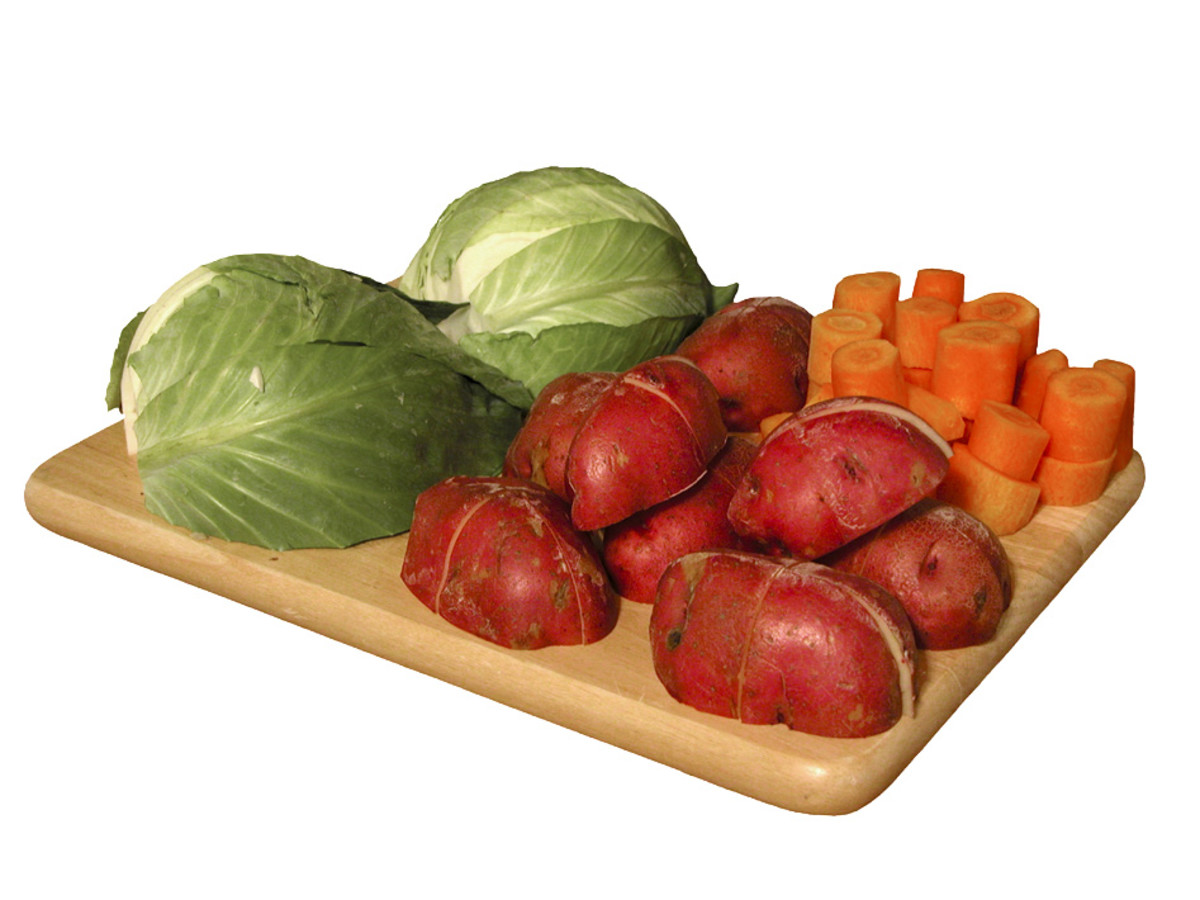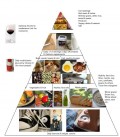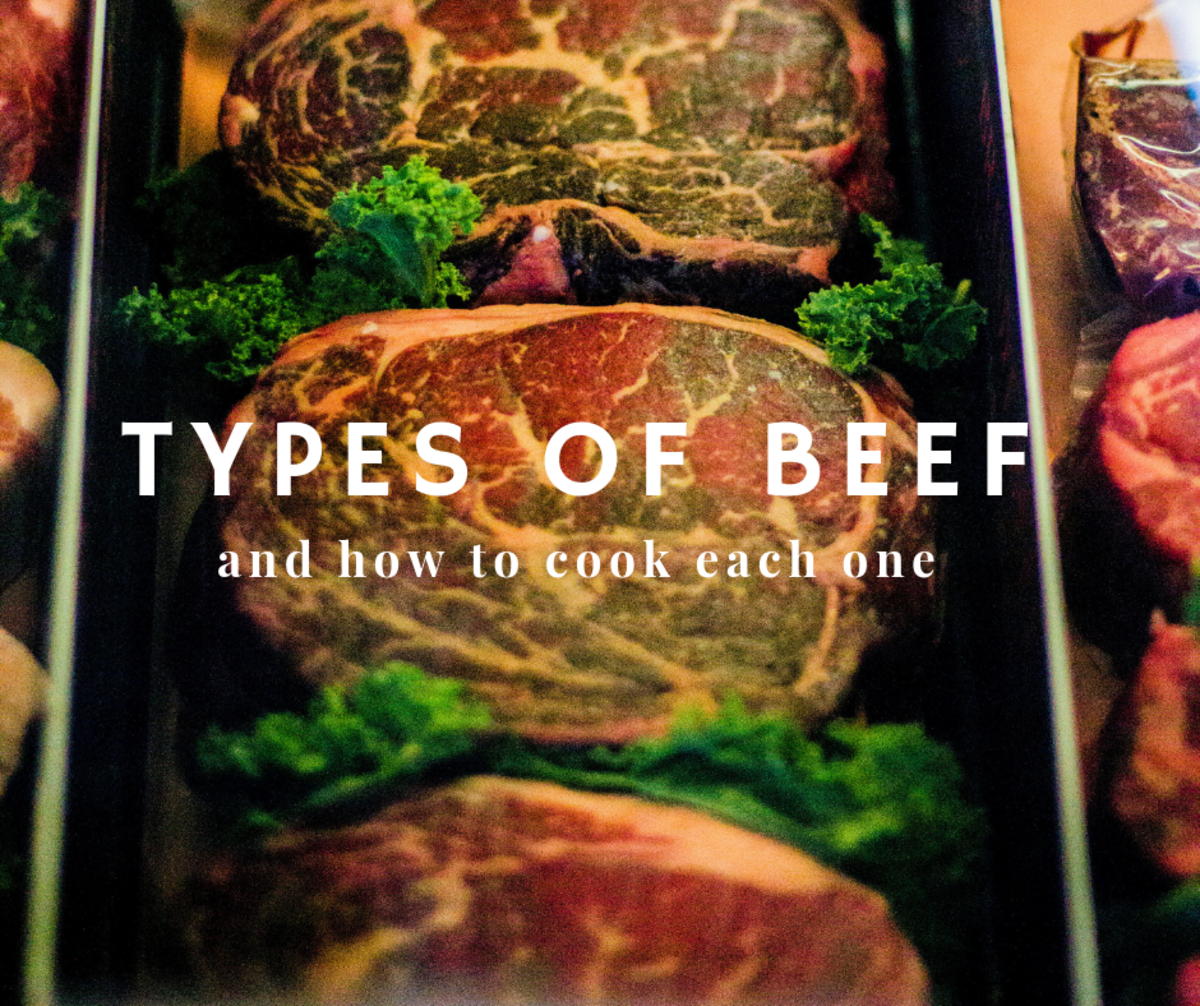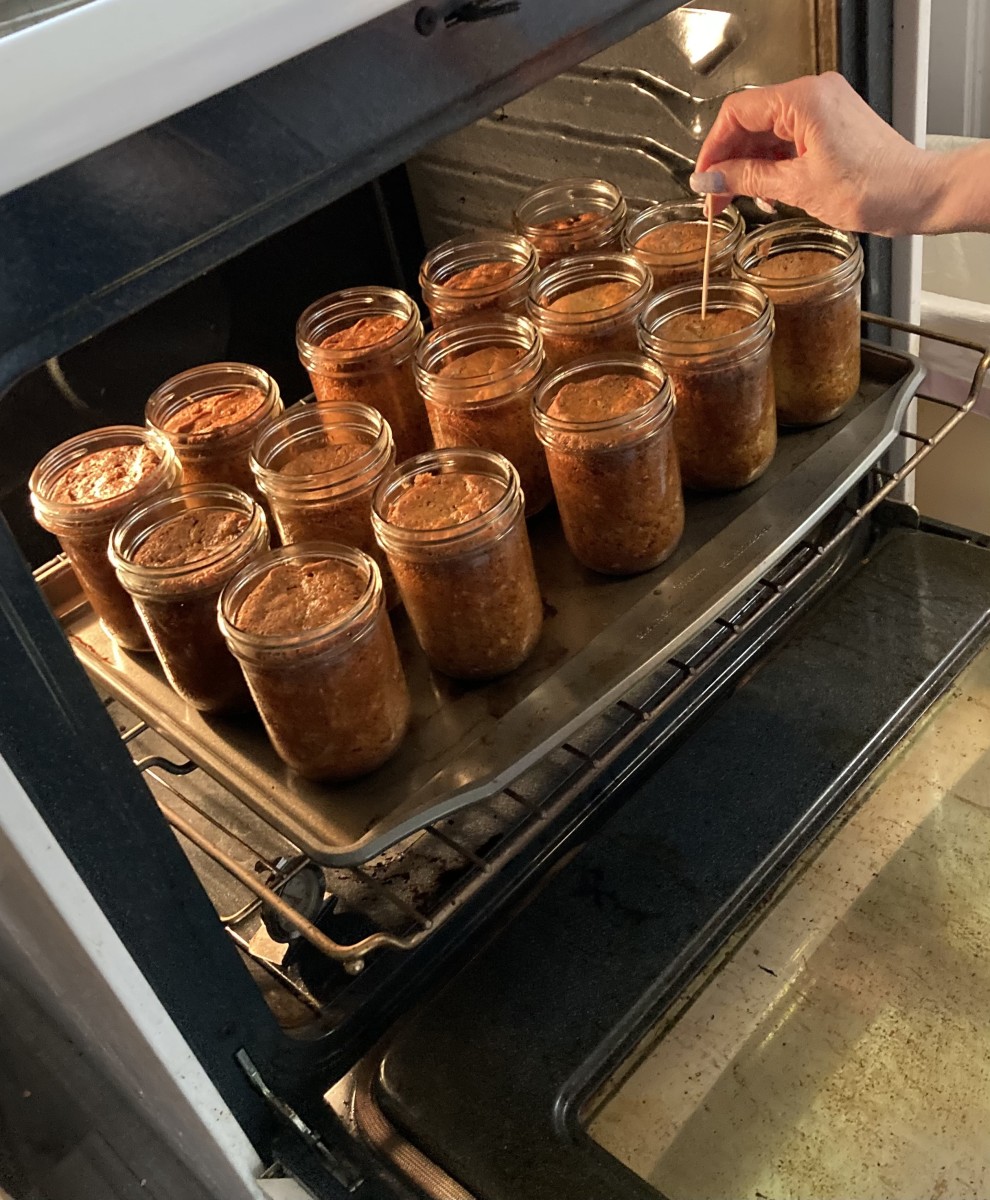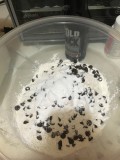Ask Carb Diva: Questions & Answers About Foods, Recipes, & Cooking, #126
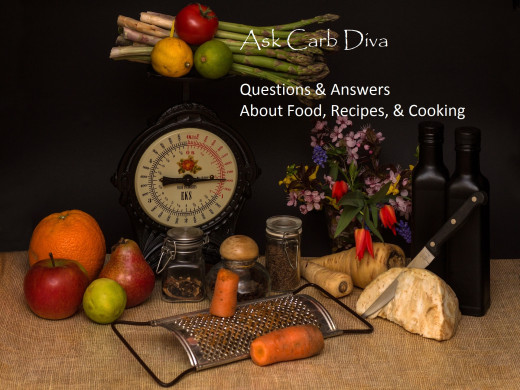
The Wait is Almost Over
About 5 miles from my home is the Old Settler’s Cemetery. Established in 1855 it is the location of about 250 graves of the area’s early pioneers. The site is barren and dreary, those resting here apparently long forgotten, except in the spring. When winter snows melt and the ground begins to warm, flowers are placed on each of the burial sites.


It’s a beautiful, touching sight, and a reminder to me that the season of renewal and growth and promise and hope, the season of Spring, is just around the corner.
Let's Get Started With Today's Mailbox
If you're an old friend, you already know how this works. But, if this is your first visit, let me introduce you to my kitchen.
Each week I receive questions about food ingredients, cooking or baking terms or methods, requests for recipes, and queries about nutrition. Just about anything food-related has been covered here.
I'm sharing this past week's questions and my responses; it happens every Monday. Want to join in the fun? You can leave your question in the comments below, and next week the answer will be right here. It's that easy.
Why Do Some Foods Have More Than One Name?
"Something that has made me wonder at times is in regard to the different names of certain foods/products. I know it is common that names vary in different countries e.g. coriander (Australia) and cilantro (USA) but what about things like ketchup vs catsup? We just call it tomato sauce."
Jodah (John Hansen) you have no idea how happy you've made me. I love delving into the history of foods and the etymology of food names. But before I dig into the research, I'm going to present my hypothesis. (Sorry, can't help it; I've lived with a scientist for almost 40 years and a bit of him has rubbed off on me). Anyhow, my guess is that we have a global dining table. We don't just eat the foods in and near our little villages anymore. And, since there are goodness-knows how many different languages and dialects, the name of the same food item can take many different forms.
Let's take your example of catsup vs. ketchup. The word (either one) is an Anglicized version of the name for a condiment that was introduced to British sailors in the late 17th century. The word itself is thought to come from the Cantonese k’ē chap or the Malay kēhap, both of which refer to a kind of fish sauce. Yes, once upon a time, ketchup was made from fermented fish guts. (Thank goodness that recipe has been lost!)
Today ketchup is the preferred spelling but that hasn't always been the case. Are you ready for some data? I found this chart on the website Writing Explained.
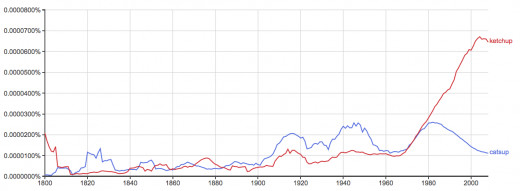
"The above graph charts the use of ketchup vs. catsup over time, and, as you can see, ketchup is used much more frequently than is catsup. If you are a writer in any English speaking country today, ketchup is the spelling you will want to use." — Writing Explained
Until 1837 ketchup (or catsup) was not commercially produced and distributed so the naming was a case of "anything goes." Then Heinz entered the scene and branded their product as "Heinz tomato catsup." In the 1880's they changed the name to "Heinz tomato ketchup" so that they would stand apart from their competition. It worked, and now ketchup is the preferred spelling (and pronunciation). So in this particular case, it wasn't a regional difference but rather a bit of keen marketing.
Want some other examples? Here's a short list:
- zucchini/courgette
- eggplant/aubergine
- fries/chips
- biscuits/cookies
- scones/biscuits
- pancakes, hotcakes, flapjacks
- hoagy/sub/poor boy/grinder
- arugula/rocket
- broccoli rabe/rappini
- calamari/squid
Can you think of others?
Are There Foods That Mimic Arthritis?
"Do you know of foods that can mimic arthritis? I'm getting some pain here in Germany. I'm suspecting cheese, maybe coffee too. Let me know what you come up with."
Manatita, I'm sorry that you are feeling some discomfort. I have osteoarthritis, so this is a topic that really gets my attention. I haven't found any research that names coffee (caffeine) as a trigger for inflammation, but cheese certainly can be a problem. Here's a list of foods to avoid (or at least limit your intake):
- Saturated fats (that's cheese, full-fat dairy, and red meats)
- Sugar (oh, I know, that's a difficult one, isn't it?)
- Trans fats (these are the artificially produced fats; margarine is a good example).
- Omega-6 (vegetable-based oils, mayonnaise)
- Refined carbohydrates (white flour)
- Aspartame (artificial sweetener)
- Alcohol
There has been research pointing to a connection to stress and inflammation, so perhaps travel, housing away from home, poorly-timed meals, and the change in time zones could be the problem for Manatita.
New FDA Food Labeling Guidelines
Did you see that the FDA has new guidelines about food labels? You could write about that...just saying! Happy Monday my neglected friend!
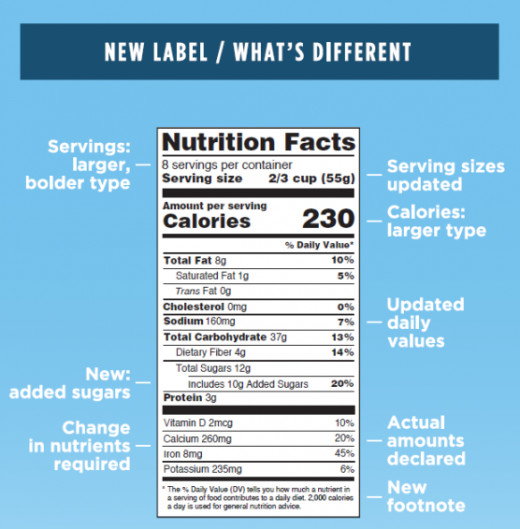
Bill, you have humbled me. As the resident foodie you’d think I’d be on top of all of this stuff, wouldn’t you? Believe it or not, I had not heard about this so thanks for bringing it to my attention. The changes made to the nutrition labels on our foods are to help us (consumers) make better-informed choices and to update standards for serving sizes and daily nutritional needs.
An example of the "new and improved" label is above. Not sure how it differs? Well, here's a side-by-side comparison.
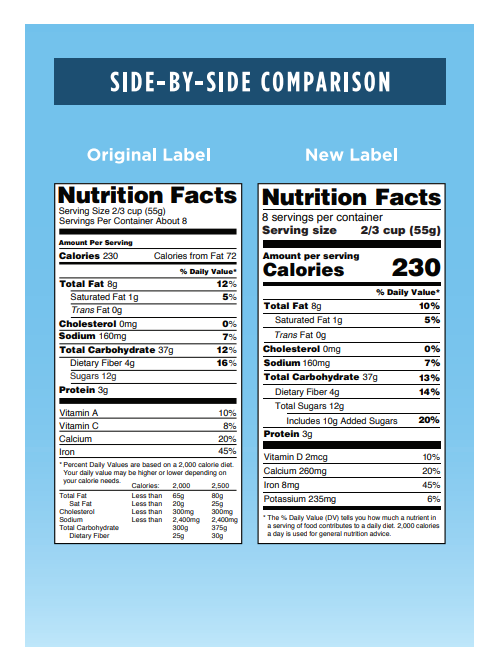
Calories per serving clearly stand out now, serving size is easier to see, and actual amounts (by percentage) are provided for nutrients.
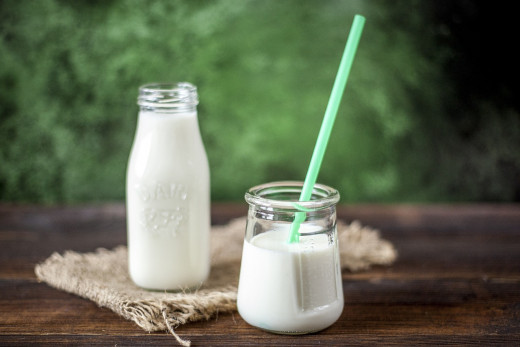
Why Is Jersey Milk More Yellow?
"Why is Jersey milk more yellow? Is it just a higher cream ratio?"
Mary (Blond Logic), you're absolutely right. Jersey cows produce less milk than (for example) Holstein cows. The higher the volume of milk, the lower the percentage of fat solids which translates to fat (cream) color.
Holstein and Jersey Comparison
Holstein
- Yearly milk yield - 10,512 kg
- Fat 3.90%
- Protein 3.22%
Jersey
- Yearly milk yield - 6,883 kg
- Fat 5.01%
- Protein 3.28%
We're Organized
Did you know that there is a Table of Contents for this series? I have created an article that provides a detailed listing of each question I've received. It's broken down by category, and within each category, the questions are listed alphabetically. Each question is actually a hotlink back to the original post.
Here's a link to that Table of Contents.
I have also cataloged all of my personal recipes that I have shared with you in this weekly Q&A series and in all of my other articles as well. The link to that Index is here. There are hotlinks to each recipe and this will be updated as new recipes are shared.
I'd Love to Answer Your Questions

Let's do this again next week. If you have questions about foods, cooking techniques, or nutrition you can ask them here. If you are in search of an old recipe or need ideas on how to improve an existing one I can help you. If you want to learn more, let's do it together. Present your questions, your ideas, your comments below. Or, you can write to me personally at this email address: lindalum52@gmail.com.
And, I promise that there will always be at least one photo of a kitty in every Monday post.
Sources
© 2020 Linda Lum



